Early Church Community (Acts 2:42-47)
Devotion To Teaching, Fellowship, And Prayer
The Importance Of Sound Doctrine:
One of the most important things for the early Christians was that they followed what the teachers taught. This devotion showed how much they believed in good, Biblical teaching.
In Acts 2:42 (NIV), it says, “They devoted themselves to the teaching of the apostles.” To grow spiritually and understand God’s Word deeply, you need to believe in sound theology.
The Bible gives Christians a strong base on which to build their faith, giving them a strong Biblical view as they face the difficulties of life.
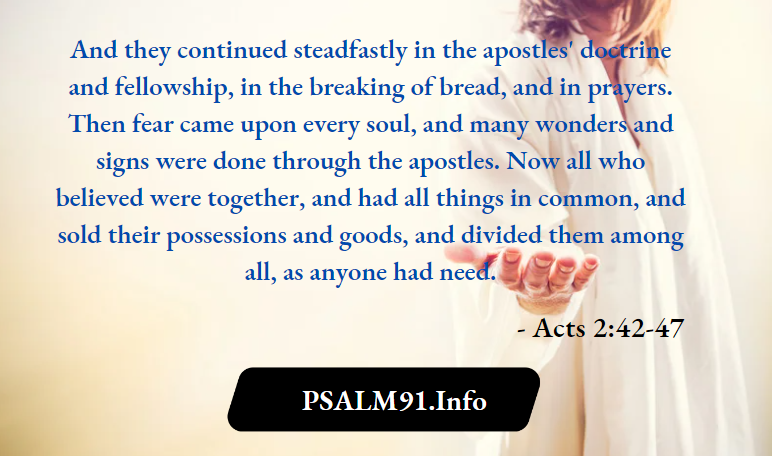
The Role Of Teaching:
In the early Church, teaching covered a lot of different areas. The lessons taught covered the beliefs and life of Jesus, the fulfilment of Old Testament prophecies, and how the Gospel should be lived by believers.
Being the leaders of the Church, the apostles were very important in teaching and guiding the early Christians in these basic beliefs.
They “devoted themselves to the apostles’ teaching,” which shows that they knew these leaders were in charge and smart. As well as being a way to teach, teaching was also a way to help people understand and live out their Christian faith.
Embracing Christian Fellowship:
There was a strong sense of community and friendship in the early Church. This group is talked about in Acts 2:44–45 (NIV): “All the believers were together and had everything in common.” They sold things they didn’t need to give to people who did.
Believers shared not only things, but also their lives and experiences with each other, which made the community close and helpful. This Christian fellowship was more than just a social get-together; it was a deep commitment to each other, like a family.
The Power Of Prayer:
In the early Church, prayer was an important part of every day life. One could talk to God through it, get advice from it, and use it to pray for each other. In Acts 2:42 (NIV), it says that they prayed all the time.
Prayer wasn’t just something people did alone; it was something that Christians did together to seek God’s help and presence. Not only did this prayer bring the Church closer together, but it also gave people a chance to support and encourage each other on their faith paths.
Devotion To Teaching, Fellowship, And Prayer Application In Modern Life:
The dedication to teaching pushes modern Christians to make learning about their faith a top priority. It’s important to make sure that the teaching we get is based on good doctrine in a world where a lot of knowledge is easy to find.
This shows how important it is to study the Bible and be careful about where we get our spiritual information.
Fellowship with other Christians tells us how important real community and helping each other are, especially in this digital age where virtual interactions can sometimes take the place of real relationships. For spiritual growth and emotional health, it’s important to make and keep meaningful ties in the Church.
The act of prayer shows how important it is to talk to God and how powerful it is to pray for others. In a world that is often noisy and busy, prayer is a way for Christians to connect with God and ask for his help and comfort.
It helps us remember that our faith is more than just a set of ideas; it’s a relationship with the One who made us.
This part of the lesson should make people think about how important good doctrine, fellowship, and prayer were in the early Church. They should also think about how these ideas can be used to help Christians today have a deeper understanding of their faith, real Christian community, and a strong prayer life.
Sharing Resources And Caring For One Another
The Practice Of Sharing:
Acts 2:44-45 (NIV) provides a glimpse into the early Christian community’s practice of sharing:
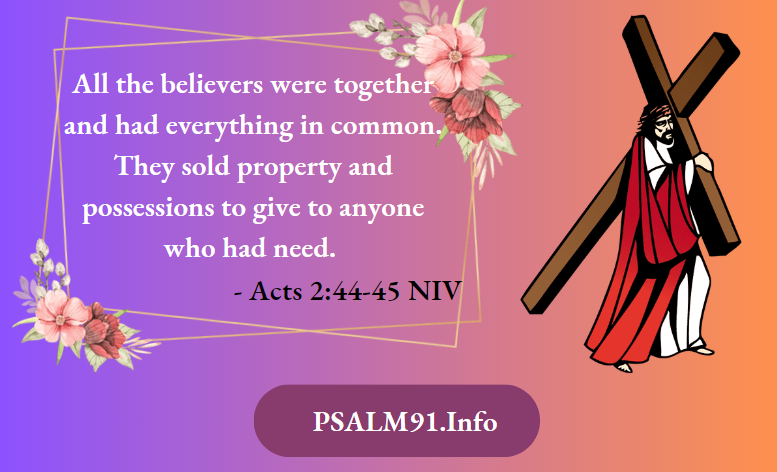
This was a voluntary and heartfelt practice, not imposed by compulsion but arising from a genuine spirit of generosity and care. It led to the equitable distribution of resources among the members of the Christian community.
The early believers recognized the value of their material possessions and were willing to part with them to support one another.
Meeting One Another’s Needs:
The sharing of resources within the early Church went beyond a mere act of charity; it was a profound expression of love and care for fellow believers.
Acts 4:34-35 (NIV) Further Illustrates This Practice:
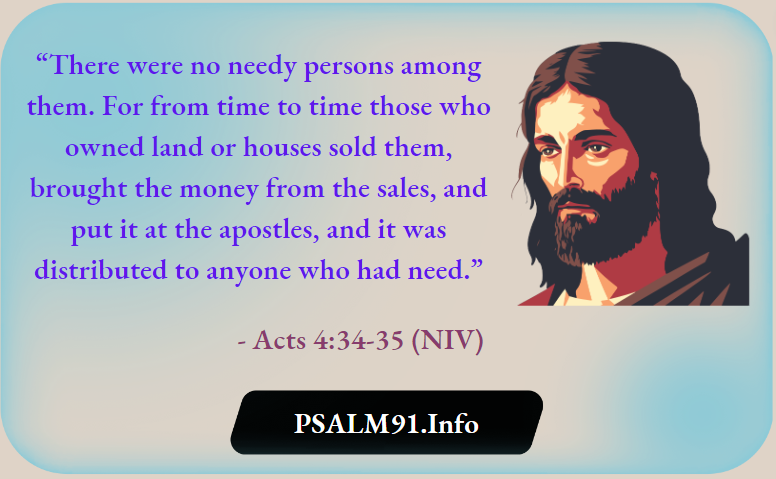
This practice extended to meeting the material needs of those who lacked, ensuring that no one among them was in want. It reflected the teachings of Jesus, who emphasized caring for the poor and the needy in the Sermon on the Mount and in various parables.
The Motivation Of Love:
At the heart of the early Church’s practice of sharing resources was a deep sense of love for one another. Believers saw themselves as one family, bound together by their common faith in Christ.
Acts 4:32 (NIV) Highlights This Unity:
Love for their brothers and sisters in Christ compelled them to be generous and compassionate, exemplifying the selfless love they had received from Jesus.
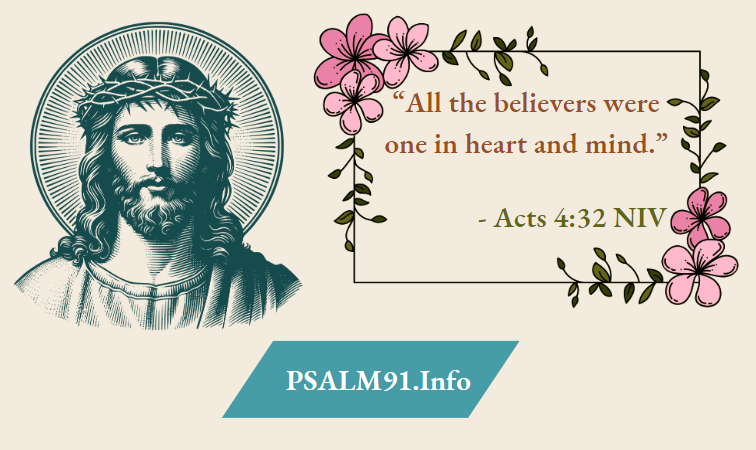
Practical Implications For Today:
The example of the early Church challenges modern believers to reevaluate their attitudes toward possessions and wealth. It encourages a shift from an individualistic mindset to a communal one, prioritizing the welfare of fellow believers over personal gain.
Sharing resources should extend beyond material possessions to include emotional and spiritual support, fostering a culture of care within the Christian community.
Stewardship and Accountability: While the practice of sharing resources was central to the early Church, it also necessitated wise stewardship of these resources.
Acts 4:35 (NIV) highlights the role of the apostles in the distribution of resources, suggesting a level of accountability: “and it was distributed to anyone who had need.” Accountability and transparency were important to ensure that resources were used effectively and ethically.
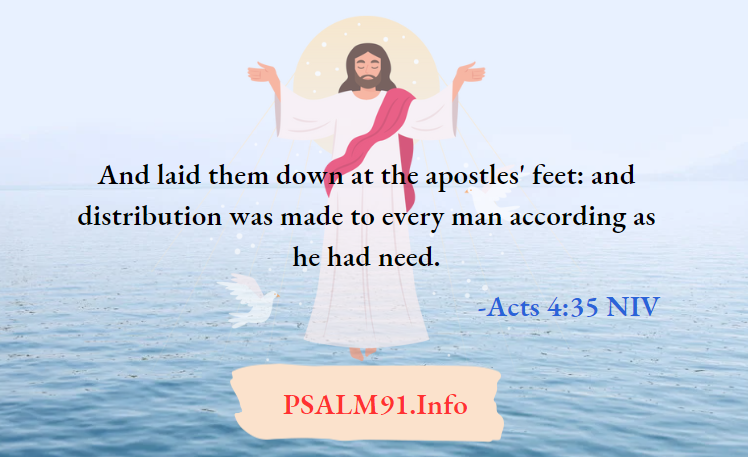
Modern believers can draw lessons on responsible stewardship from the early Church’s practices, emphasizing that the generous sharing of resources should be coupled with wise management to maximize its impact and sustainability.
This part of the lesson should prompt participants to consider the biblical model of sharing resources and caring for one another in the early Church and how these principles can be applied in their own lives and within their faith communities, emphasizing love, responsible stewardship, and a communal mindset.
Witnessing To The World
The Favor Of The People:
Acts 2:47 (NIV) mentions that the early Church found favor with all the people. This favor was not accidental but was a direct result of the genuine community and love among believers, as well as their unity in purpose and faith.
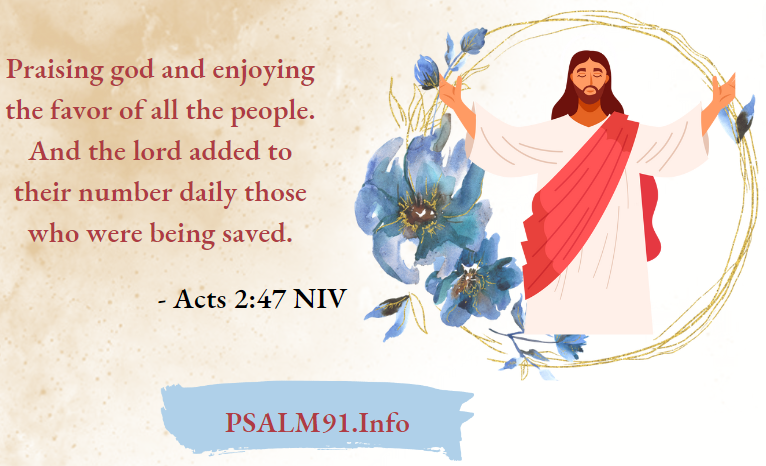
Their witness to the world began with their harmonious and compassionate life together. It demonstrated the transformative power of the Gospel in building a Christ-centered community that was both attractive and compelling to those outside the faith.
The Attraction Of Christian Community:
The early Church’s lifestyle and their care for one another made Christianity appealing to those who were not yet part of the faith.
The non-believers observed the joy, love, and unity within the Christian community and were drawn to this authentic expression of faith.
The attraction to this Christ-centered fellowship became a powerful witness in itself, illustrating the transformative impact of the Gospel on individuals and the broader community.
Strategies For Witnessing:
The witness of the early Church was not confined to mere words but extended to their actions and lifestyle. Their witness was a combination of sharing the Gospel message and living out its implications.
Modern believers can draw inspiration from the early Church’s example by living out their faith authentically, demonstrating the love, grace, and truth of Christ in their everyday lives. This holistic approach to witness serves as a powerful testimony to the transformative power of the Gospel.
The Universality Of The Gospel:
The early Church’s message was open and friendly, breaking down boundaries of race and culture. When the Holy Spirit came down on the Day of Pentecost, they were able to talk in languages that people from all walks of life could understand. This showed that the Gospel was for everyone.
This makes the call to share the message of Christ with all countries and people groups clear, so that it can be understood by a lot of people, no matter where they come from.
Sowing Seeds Of Faith:
People who watched the early Church spread their faith by seeing how they lived as Christians. A lot of people who didn’t believe in Christ were drawn to the message of Christ and finally became followers of Jesus.
Modern Christians are challenged by the example of the early Church to be thoughtful about their witness, knowing that the things they do and how they act can plant seeds of faith in the lives of people they meet every day.
This part of the lesson should make people think about how the Christian group in the early Church affected its message to the world. It should also make people think about how they can share the Gospel and live it out in their own communities in real ways that will show the world they care.
